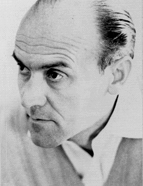

The historian’s own opinions become confused with those of the monarch he is studying. One could even regard him as a disciple of the monarch on the importance of history and public opinion, the defence of liberty and equality, of progress and education, and of the broad public interest against those of the individual. They shared a great interest in travelling and knowledge, the same cosmopolitan taste for Europe, the same understanding of the importance of social and political progress in Portugal. Furthermore, it would be unfair not to acknowledge that the researches that he carried out at Windsor contributed to new readings of D. Pedro’s reign. Despite his eulogies to D. Pedro, in his historiographical work Ruben Andresen Leitão was a careful scholar who tried to bring a critical approach to his work. He repeatedly states, for example, that despite being cultured and thirsty for knowledge, D. Pedro was too young to lead a country with so many problems. His travel diaries, considered highly relevant for an understanding of his reign, bear witness to a precocious intelligence, enabling him to write in French and English, but they also had the defects of excessive youth (errors and imprecisions in the writing, some naïve thoughts, etc.). As has been stated here, what Ruben Andresen Leitão saw in D. Pedro was the same desire to change Portugal, to learn, to travel, to understand what was modern in Europe, along with a cosmopolitanism, a struggle against national backwardness caused by the mediocrity of politicians such as the Duque de Loulé — a figure of whom Ruben Andresen Leitão would say, by way of epigraph, that he was worthless (ibidem).
Ruben Andresen Leitão’s literary work, signed in the pen-name Ruben A., ran in parallel with his historiographical writing, giving a pessimistic view, though without ignoring the comic or pathetic elements running through the tragedy of the Portuguese scene. In his prize-winning novel A Torre de Barbela (1964), he tells the story of the Barbela family from the foundation of the kingdom of Portugal to the present. This family is composed of ghosts of noble blood unaware of what has happened to them, deprived of a power that like the Portuguese glories of the sixteenth century has vanished into smoke. They start by aiding D. Afonso Henriques to expel the moors, and later travel in the caravels to Africa, India and Brazil, and arrive at the twentieth century in a state of profound decline. The Barbelas are the reflection of a country that has become backward-looking and provincial. The memory of glorious deeds is an increasingly faded mirage, and the most that these Lusitanian ghosts have in their hands is a mist that every day gives them up a little more to oblivion.
